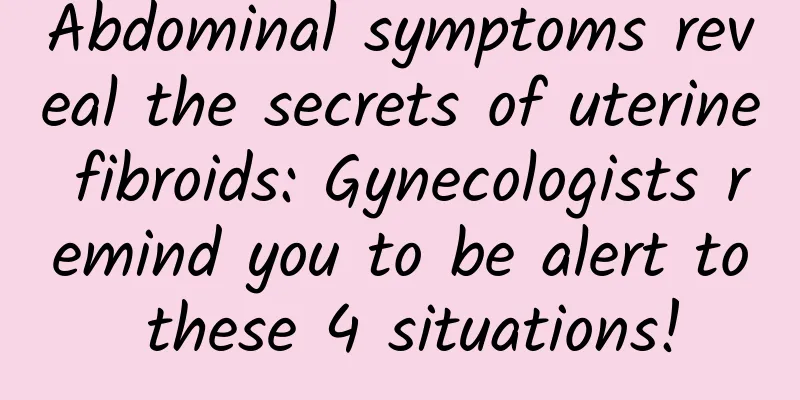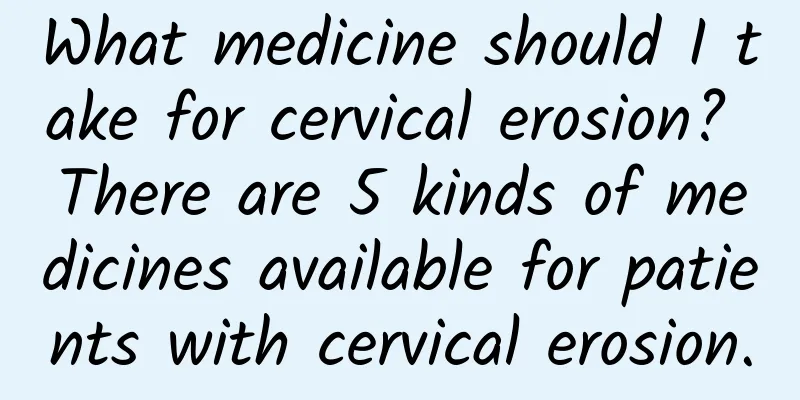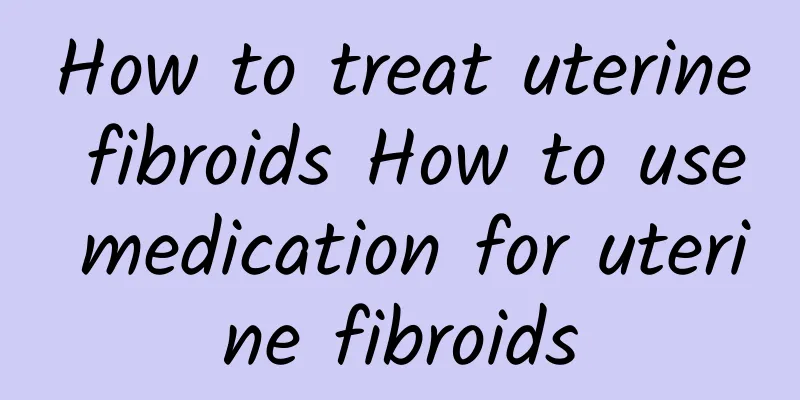Abdominal symptoms reveal the secrets of uterine fibroids: Gynecologists remind you to be alert to these 4 situations!

|
Uterine fibroids, as the most common benign tumor in the female reproductive system, affect the health of many women. Although most patients with uterine fibroids may have no obvious symptoms, some specific abdominal symptoms may be a signal of the presence of uterine fibroids. Gynecologists especially remind that when the following four abdominal symptoms appear, you should be vigilant and seek medical attention in time for early diagnosis and treatment. 1. Abnormal menstruation Changes in menstrual cycle and amount are one of the most common symptoms of uterine fibroids. If you find that your menstrual cycle is shortened, the amount of menstrual blood increases significantly, or even the menstrual period is extended to more than a week, you need to pay special attention. These changes may be because the presence of intrauterine fibroids affects the normal shedding of the endometrium, resulting in increased menstrual volume and cycle disorders. Long-term excessive menstruation may also cause anemia, fatigue, dizziness and other symptoms. 2. Abdominal mass Some patients with uterine fibroids may feel a hard, painless mass in the lower abdomen. As the fibroid grows, this mass may become more noticeable. Although not all uterine fibroids can be felt by external palpation, for those that are more superficial or larger, the appearance of an abdominal mass is an immediate warning sign. 3. Compression symptoms As uterine fibroids grow, they may compress surrounding organs, causing different compression symptoms. For example, compression of the bladder may cause frequent urination, urgency, or even difficulty urinating; compression of the rectum may cause constipation or difficulty defecating. In addition, prolonged compression may also cause a feeling of heaviness or discomfort in the lower abdomen. Although these symptoms are not as obvious as bleeding, they should not be ignored. 4. Pain Although most uterine fibroids are painless, they may cause pain in the lower abdomen or pelvis when they grow rapidly, degenerate, necrotize, or compress surrounding tissues. Especially when the fibroids twist or undergo red degeneration, the pain may suddenly intensify and even require emergency medical intervention. In addition, increased pain during menstruation may also be the result of the impact of uterine fibroids. Although uterine fibroids are mostly benign, the symptoms they cause should not be underestimated, especially the abdominal symptoms mentioned above. Gynecologists recommend that women should undergo regular gynecological examinations, especially those with a family history of uterine fibroids, those who have never given birth, or those approaching menopause should be more vigilant. Once the above symptoms appear, seek medical attention in a timely manner and confirm the diagnosis through imaging methods such as ultrasound and MRI. The doctor will develop a personalized treatment plan based on the size, location, symptoms of the fibroids and the patient's age and fertility needs, including drug therapy, interventional surgery, or traditional laparotomy/laparoscopic surgery, etc., to achieve the purpose of controlling symptoms, preserving fertility or completely curing. Early detection and reasonable treatment can effectively avoid the potential harm caused by uterine fibroids and protect women's reproductive health. |
<<: Why do some women still look young even after menopause? It may be related to these 5 habits
Recommend
How to treat postpartum cervical erosion in women? Patients with postpartum cervical erosion should pay attention to these before treatment
What is the treatment of postpartum cervical eros...
Dietary considerations for patients with dysmenorrhea
Dysmenorrhea is one of the more common diseases d...
What are the tests for missed abortion?
Missed abortion is very harmful to women. In orde...
Can ovarian cysts be cured with medicine?
Can ovarian cysts be cured with medicine? 1. Ovar...
Can uterine fluid accumulation cause abdominal pain?
Female friends will feel panic from the bottom of...
Eat the right protein to lose weight more smoothly
Many people go on a diet to lose weight, eating o...
How long does it take to get menstruation after ectopic pregnancy surgery?
Surgery is generally a good treatment for ectopic...
What are the causes of dysmenorrhea?
Dysmenorrhea causes great physical harm and pain ...
Nosebleeds in adults are a sign of physical problems
Nosebleeds in adults are a sign of physical probl...
What are the treatments for cervical warts?
In life, many friends are reluctant to go to the ...
How does Traditional Chinese Medicine classify and treat irregular menstruation?
There are many types of irregular menstruation, s...
Poor menstrual hygiene can easily cause pelvic inflammatory disease
Pelvic inflammatory disease is a general term for...
Eat only vegetables for dinner to lose weight? Nutritionists teach you how to lose weight
In order to lose weight successfully, you must ha...
Superconducting visual painless abortion is very safe!
Are you still worried about an unexpected pregnan...
What are the treatments for female cervical erosion? Introduction to Chinese and Western medical treatments for female cervical erosion
There are many treatments for cervical erosion. Y...









